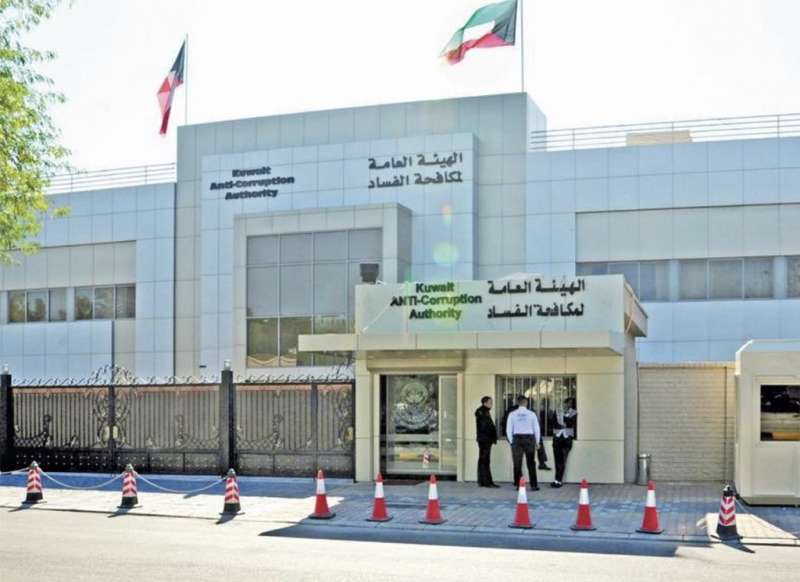Latest News
- Kuwait, Oman Sign A Nurse Training Agreement
- Saudi Arabia And Kuwait Share The Durra Field
- Citizen Detained For Alleged Involvement In Terrorist Plot
- Student Beaten By Teacher, Insulted
- MoH Issues New Drug Pricing Regulations
- On International Labor Day, Kuwait Affirms Its Commitment To Wor...
- MEW's Water & Power Plants Reach 95% Kuwaitization
- Efforts Are Being Made By Kuwait To Cut Subsidies' Waste
- Mobile ID No Longer Displays 'vaccination Status'
- Kuwait Imposes 5,000 Dinar Fines For Unlicensed Or Unrenewed Ads
- National Military Service Authority Delegation Explores Collabor...
- Egypt's President Honors His Highness Amir Sheikh Mishal Al-Ahma...
Co-ops Selected For Investigation In 18 Cases

The Ministry of Social Affairs' Cooperative Affairs Sector last year submitted 18 cooperative organisations to the Public Prosecution as part of measures to safeguard shareholders' funds and prevent fraud. According to the Al-Qabas newspaper, it also carried out 130 judicial seizures as a result of financial and administrative irregularities and established committees to look into accusations of usufruct and legal infractions. Reliable sources report that there are ongoing efforts to regulate the cooperative sector and implement stringent safeguards for public funds.
A workshop on "the internal audit methodology and its importance in strengthening the trends and governance of cooperative and community work" was recently held by the Kuwait Anti-Corruption Authority (Nazaha) with the support of the Ministry of Social Affairs and Community Development and a number of public benefit organisations. In order to save public funds and safeguard shareholders' rights, the speakers at the workshop emphasised the significance of adopting the governance structure in cooperative work and turning on performance control.
Director of the Department of Cooperative Control and Inspection for the Ministry of Social Affairs, Nawaf Al-Duwaisan, highlighted the desire of the ministry's inspectors to keep an eye on cooperative societies' operations by turning on the pre-and post-oversight mechanisms.
He described how the ministry gradually tracks infractions, makes observations about how cooperative groups are doing, and offers its own observations. Sometimes legal processes are carried all the way to the prosecution. To review and look into administrative and financial infractions, committees are constituted. Additionally, Fajr Al-Roumi, director of the audit and inspection division at the Kuwait Anti-Corruption Authority (Nazaha), reaffirmed the authority's eagerness to host workshops aimed at enhancing the principles of integrity, transparency, and accountability and combating corruption in a way that promotes the performance of cooperative work. She clarified that the collaborative approach is non-profit in nature and voluntary in character. By offering consumer products and food items, it seeks to promote both domestic and international trade.
Correct procedure-based governance will promote the growth and sustainability of services, lessen opportunities for the exchange of power and positions, uncover fraud and administrative corruption, enhance accounting, financial, and administrative procedures, and promote justice and information transparency. In order to encourage civil society and community institutions of all kinds to play a greater role in raising community awareness and implementing the priorities and objectives of the National Anti-Corruption Strategy (2019-2024), Nazaha has partnered with government agencies and civil society organisations. This is a continuation of the authority's journey in enacting its objectives.
Al-Roumi commended the Union of Consumer Cooperative Societies' efforts in the current period for focusing on cooperative training, one of the most significant pillars of human capital development represented in the workforce, particularly the national workforce. She emphasised in her final statement that experts and professionals from civil society organisations were involved in gathering the information that will be presented at the workshop, which is one of the channels of support and guidance for reform and the pursuit of the objectives that the sector aspires to.
Trending News
-
 Expat Residency Law Amended By Kuwait Ministerial...
20 April 2024
Expat Residency Law Amended By Kuwait Ministerial...
20 April 2024 -
 Two Expats Are Arrested For Stealing From Salmiya...
17 April 2024
Two Expats Are Arrested For Stealing From Salmiya...
17 April 2024 -
 Ministry Announces Separate Time For Amnesty Seeke...
21 April 2024
Ministry Announces Separate Time For Amnesty Seeke...
21 April 2024 -
 Work Permits Will Be Issued For One Year Under The...
27 April 2024
Work Permits Will Be Issued For One Year Under The...
27 April 2024 -
 The Ministry Connects With Violators Of Residency...
23 April 2024
The Ministry Connects With Violators Of Residency...
23 April 2024 -
 Temperature Increases Cause Electricity Load Index...
21 April 2024
Temperature Increases Cause Electricity Load Index...
21 April 2024 -
 3 Expats Caught In Salmiya With 213 Bottles Of Loc...
23 April 2024
3 Expats Caught In Salmiya With 213 Bottles Of Loc...
23 April 2024 -
 AstraZeneca Admits Covid Vaccine Can Cause Rare Si...
29 April 2024
AstraZeneca Admits Covid Vaccine Can Cause Rare Si...
29 April 2024 -
 Al-Nuer Festival Celebrates Kuwaiti Agriculture Wi...
22 April 2024
Al-Nuer Festival Celebrates Kuwaiti Agriculture Wi...
22 April 2024 -
 The Husband Kidnaps His Kids And Travels Back Home
16 April 2024
The Husband Kidnaps His Kids And Travels Back Home
16 April 2024












Comments Post Comment